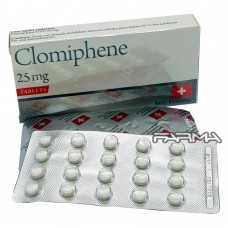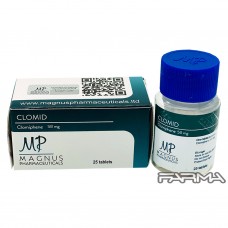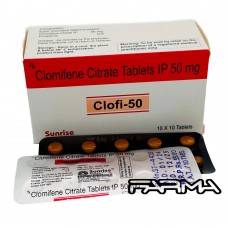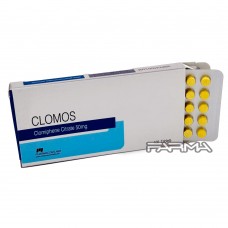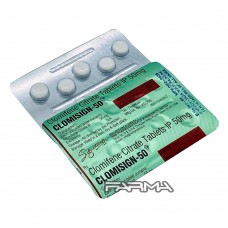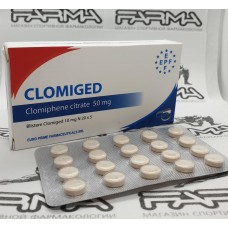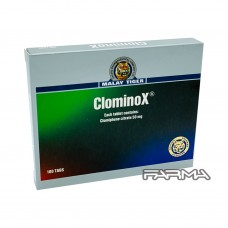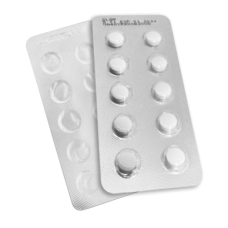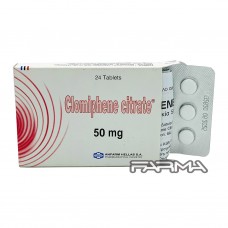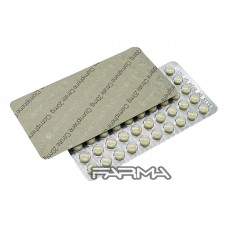Clomid, also known by its generic name clomiphene citrate, is a medication classified as a selective estrogen receptor modulator (SERM). It is primarily used in the treatment of female infertility due to anovulation (lack of ovulation). Additionally, Clomid is sometimes used off-label in men with low testosterone levels and in the bodybuilding community to mitigate the side effects of anabolic steroid use. Understanding the uses, effects, and considerations of Clomid is essential for individuals considering its use, both medically and non-medically.
Mechanism of Action:
-
Estrogen Receptor Modulation : Clomid acts as a SERM, meaning it binds to estrogen receptors in the body and modulates their activity. In women, Clomid blocks estrogen receptors in the hypothalamus, leading to an increase in gonadotropin-releasing hormone (GnRH) secretion, which stimulates the release of follicle-stimulating hormone (FSH) and luteinizing hormone (LH) from the pituitary gland. This, in turn, promotes ovulation.
Medical Uses of Clomid:
-
Female Infertility Treatment : Clomid is commonly used in women who experience infertility due to anovulation or irregular ovulation patterns. It helps induce ovulation and improve the chances of conception when timed intercourse or assisted reproductive technologies (such as intrauterine insemination or in vitro fertilization) are used.
Off-Label Uses of Clomid:
-
Male Hypogonadism Treatment : In men with low testosterone levels due to hypogonadism, Clomid may be used off-label to stimulate the production of testosterone by the testes. By blocking estrogen receptors in the hypothalamus and pituitary gland, Clomid increases the secretion of GnRH, FSH, and LH, leading to enhanced testosterone production.
-
Post-Cycle Therapy (PCT) for Steroid Users : In the bodybuilding community, Clomid is sometimes used off-label as part of post-cycle therapy (PCT) to restore natural testosterone production following anabolic steroid cycles. Anabolic steroids can suppress the body's natural testosterone production, and Clomid helps stimulate the hypothalamus and pituitary gland to produce GnRH, FSH, and LH, which in turn stimulates testosterone production.
Considerations for Clomid Use:
-
Dosage and Administration : The dosage of Clomid varies depending on the individual's needs and medical condition. In women undergoing fertility treatment, typical dosages range from 50 to 100 mg daily for 5 days, starting on day 3, 4, or 5 of the menstrual cycle. In men with low testosterone levels, dosages may vary, and treatment duration may be longer.
-
Side Effects : Common side effects of Clomid include hot flashes, mood swings, breast tenderness, bloating, and headaches. Rare but serious side effects may include ovarian hyperstimulation syndrome (OHSS), vision changes, and allergic reactions. Proper dosing and monitoring can help mitigate these side effects.
-
Multiple Pregnancy Risk : Women undergoing fertility treatment with Clomid have an increased risk of multiple pregnancies, such as twins or triplets. Close monitoring and proper dosing are essential to minimize this risk and ensure a safe pregnancy outcome.
-
Interactions : Clomid may interact with certain medications, supplements, and herbal products. It is essential to inform healthcare providers of all medications being taken to avoid potential interactions.
-
Medical Supervision : Clomid should be used under the supervision of a qualified healthcare provider, particularly when used off-label or in the context of anabolic steroid cycles. Regular monitoring of hormone levels, ovulation, and side effects is essential to ensure safe and effective treatment.
Conclusion: Clomid (clomiphene citrate) is a medication primarily used in the treatment of female infertility due to anovulation. It is also used off-label in men with low testosterone levels and in the bodybuilding community to mitigate the side effects of anabolic steroid use. Understanding the uses, effects, and considerations of Clomid is essential for individuals considering its use, both medically and non-medically. Proper dosage, administration, monitoring, and medical supervision are crucial to ensure the effectiveness and safety of Clomid therapy.
